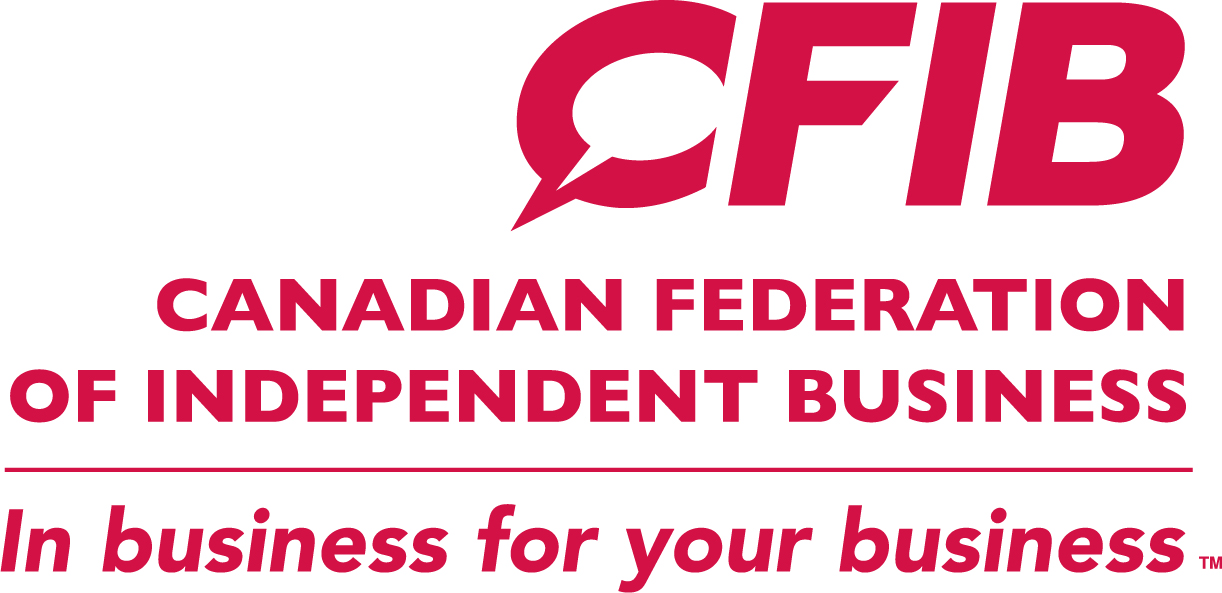Canada's internal trade barriers are finally coming down, but patchwork of government approaches could create new challenges Français
CFIB's 2025 internal trade report card sees major improvements from provinces introducing mutual recognition legislation
TORONTO, June 30, 2025 /CNW/ - More progress has been made on removing trade barriers within Canada in the past six months than in eight years since the Canadian Free Trade Agreement (CFTA) was signed, finds the Canadian Federation of Independent Business (CFIB)'s latest State of Internal Trade report: Interprovincial Cooperation Report Card.
"While progress to date has been encouraging, we also have seven different jurisdictions taking seven different approaches to mutual recognition. That kind of patchwork can wind up recreating the barriers it was meant to knock down," said Ryan Mallough, CFIB's vice-president of legislative affairs. "We're marching the ball down field, but we haven't reached the end zone just yet. The premiers and the prime minister have instructed the Committee on Internal Trade to reach a pan-Canadian mutual recognition agreement for December. We'll be watching those conversations closely to ensure we cross the goal line and finally eliminate Canada's internal trade barriers once and for all."
Nova Scotia, the first province to introduce and implement mutual recognition legislation, achieved the highest grade in CFIB's 2025 Internal trade report card with a score of 9.4 (A grade). Ontario is a close second after eliminating all of its CFTA exemptions, scoring a 9.2 (A grade).
The 2025 report card grades are:
Jurisdiction |
Canadian Free |
Select Barriers |
Status of Items from |
Bonus |
Overall |
||||
NS |
2.3 |
F |
5.9 |
D |
8.9 |
A- |
8.5 |
9.4 |
A |
ON |
10 |
A+ |
6.0 |
D |
8.2 |
B |
5 |
9.2 |
A |
MB |
7.3 |
C+ |
5.4 |
D |
9.6 |
A |
5 |
8.9 |
A- |
BC |
6.3 |
C- |
4.1 |
D |
9.2 |
A |
5 |
8.5 |
B+ |
FED* |
6.8 |
C |
9.7 |
A |
0 |
8.2 |
B |
||
AB |
7.9 |
B |
4.1 |
D |
9.5 |
A |
1 |
8.0 |
B |
PEI |
3.1 |
F |
4.7 |
D |
8.8 |
A- |
5 |
7.8 |
B |
SK |
6.8 |
C |
5.3 |
D |
9.2 |
A |
1 |
7.7 |
B- |
NB |
4.8 |
D |
4.7 |
D |
8.5 |
B+ |
1 |
6.6 |
C |
QC |
0.0 |
F |
3.6 |
F |
8.9 |
A- |
3 |
6.0 |
C- |
NL |
4.1 |
D |
2.6 |
F |
8.5 |
B+ |
1 |
6.0 |
C- |
NT |
4.8 |
D |
2.0 |
F |
8.8 |
A- |
0 |
5.8 |
D |
NU |
4.5 |
D |
2.0 |
F |
8.6 |
B+ |
0 |
5.6 |
D |
YT |
1.3 |
F |
3.0 |
F |
8.8 |
A- |
0 |
4.6 |
D |
The federal government is scored on two areas: the economic impact score based on the procurement exceptions they maintain from the CFTA in 2025, and the implementation status of reconciliation agreements. Both areas are weighted equally (50% each) as the select barriers area was not available for this analysis. |
The report grades three major areas of interprovincial/territorial cooperation: CFTA exceptions, select barriers to trade, and the status of items from reconciliation agreements. There's an updated bonus indicator that rewards jurisdictions that accept other regions' regulations and standards as sufficient within their own jurisdiction.
"Three years ago, we challenged governments to blow a hole through Canada's internal trade barriers by adopting mutual recognition policies to get the flow of goods, services and people moving across the country. At the time, we heard all the reasons why it couldn't be done. But just in the past six months we've seen seven jurisdictions with mutual recognition legislation on the books," said SeoRhin Yoo, CFIB's senior policy analyst for interprovincial affairs. "The internal trade file is finally getting the attention is has desperately needed since the CFTA was signed in 2017. While there's lots of reason for optimism, we'll be closely watching governments' next steps, including the crucial regulations that will follow legislation, to ensure the rules match the rhetoric and small businesses feel actual progress on the ground."
Read CFIB's full Canada's Interprovincial Cooperation Report Card.
About CFIB
The Canadian Federation of Independent Business (CFIB) is Canada's largest association of small and medium-sized businesses with 100,000 members across every industry and region. CFIB is dedicated to increasing business owners' chances of success by driving policy change at all levels of government, providing expert advice and tools, and negotiating exclusive savings. Learn more at cfib.ca.
SOURCE Canadian Federation of Independent Business

For media enquiries or interviews, please contact: Ryan Mallough, CFIB, 647-464-2814, [email protected]


Share this article